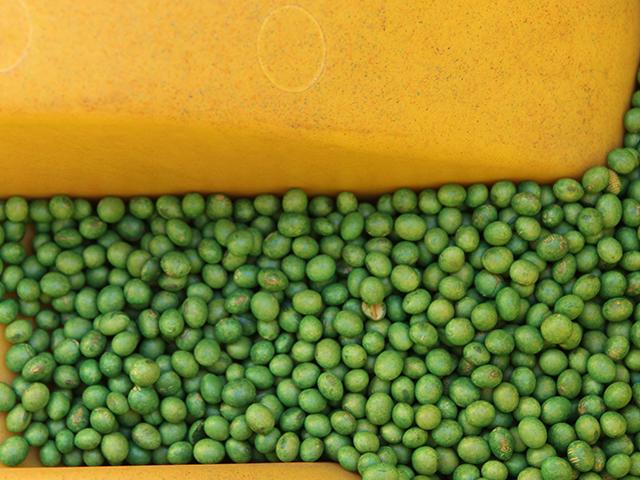NY Moves Against Neonic Insecticides
New York Legislature Passes Bill to Ban Neonic-Treated Seeds in State
OMAHA (DTN) -- New York could become the first state in the country to outright ban the use of neonicotinoid-treated seeds if Gov. Kathy Hochul signs the bill into law.
The New York Legislature last Friday gave final approval to a bill dubbed the "Birds and Bees Protection Act" that would ban the sale of seeds coated with neonicotinoid or "neonic" ingredients. The bill would immediately ban the sale of corn, soybeans or wheat seeds coated with insecticides with neonicotinoid active ingredients clothianidin or dinotefuran and it would ban imidacloprid, thiamethoxam or acetamiprid on or after July 1, 2025. The bill would also ban the use of neonics in lawn products.
According to USDA, New York has more than 1 million corn, soybean and wheat acres collectively, but the ban would also impact vegetable production and orchards in the state.
The New York legislation parallels a bill passed by California lawmakers last year that was vetoed by California Gov. Gavin Newsom last September. Still, the California Department of Pesticide Regulations has advanced tighter regulations on neonic ingredients that go into effect on Jan. 1, 2024. California's regulations limit the amount of soil or foliar applications for neonics, including bans on some neonics on oilseeds and legumes.
The bill passed the New York Senate last week on a 45-16 vote after passing the New York State Assembly in April on a 100-49 vote.
Before the April vote by the New York Assembly, agricultural groups had written the governor and top lawmakers warning that prohibiting neonic technology would put New York dairy farmers, corn and soybean producers, vegetable growers and even golf-course superintendents and landscapers "at a severe disadvantage" compared to other states. The bill also would cause farmers to reduce the adoption of certain soil-health practices that lower greenhouse-gas emissions.
P[L1] D[0x0] M[300x250] OOP[F] ADUNIT[] T[]
"Without treated seed and applications of crop protectants, farmers would revert to planting fewer cover crops to avoid losses to seed Corn Maggot and other pests," the farm groups stated. Pointing to regulatory burdens, the farm groups added, "the notion of eliminating safe and stringently regulated technologies would be devastating to one of the state's most critical economic engines."
After the bill passed, state Sen. George Borello, a Republican from Sunset Bay, N.Y., said the state Senate made a mistake in passing the bill.
"Use of this innovative technology has helped farmers optimize crop yield and quality and allowed them to greatly reduce the large-scale spraying of older, more toxic and environmentally harmful pesticides. Pesticide application rates will increase by an estimated 375 percent per acre if this bill is enacted into law," Borrello said.
The American Council on Science and Health included an op-ed last week that the New York legislature was "putting the bogus claims of activists ahead of the welfare of consumers and farmers." The op-ed added neonics are considered among the world's most environmentally safe class of insecticides. Europe has also seen complications from its ban such as aphids that have decimated sugar-beet yields in countries because of Europe's ban on neonics.
Still, groups such as the Natural Resources Defense Council (NRDC) praised the New York bill and cited a Cornell University study declaring neonics provide no economic benefits and can be replaced with safer alternatives.
"Neonics are linked to massive bee and bird losses that impact food production, contaminate New York water and soil, and create human health concerns, especially with recent testing showing rising levels of neonics in 95% of pregnant women from New York and four other states," NRDC stated. "While the Birds and Bees Protection Act does not go as far as Europe's total outdoor neonic ban, and Canada has largely phased out neonic-coated corn and soybean seeds, it is the first law to address neonic seed coatings in the U.S. -- far and away the largest and most widespread neonic use nationwide."
NRDC also pointed to an EPA assessment released in early May citing that clothianidin, imidacloprid and thiamethoxam lead to greater risks for certain endangered species and critical habitats.
Hochul's office has not stated whether she will sign the bill.
EPA review of neonics: https://www.epa.gov/…
Also see, "Mead Ethanol Plant Cleanup in New Phase," https://www.dtnpf.com/…
Chris Clayton can be reached at Chris.Clayton@dtn.com
Follow him on Twitter @ChrisClaytonDTN
(c) Copyright 2023 DTN, LLC. All rights reserved.






